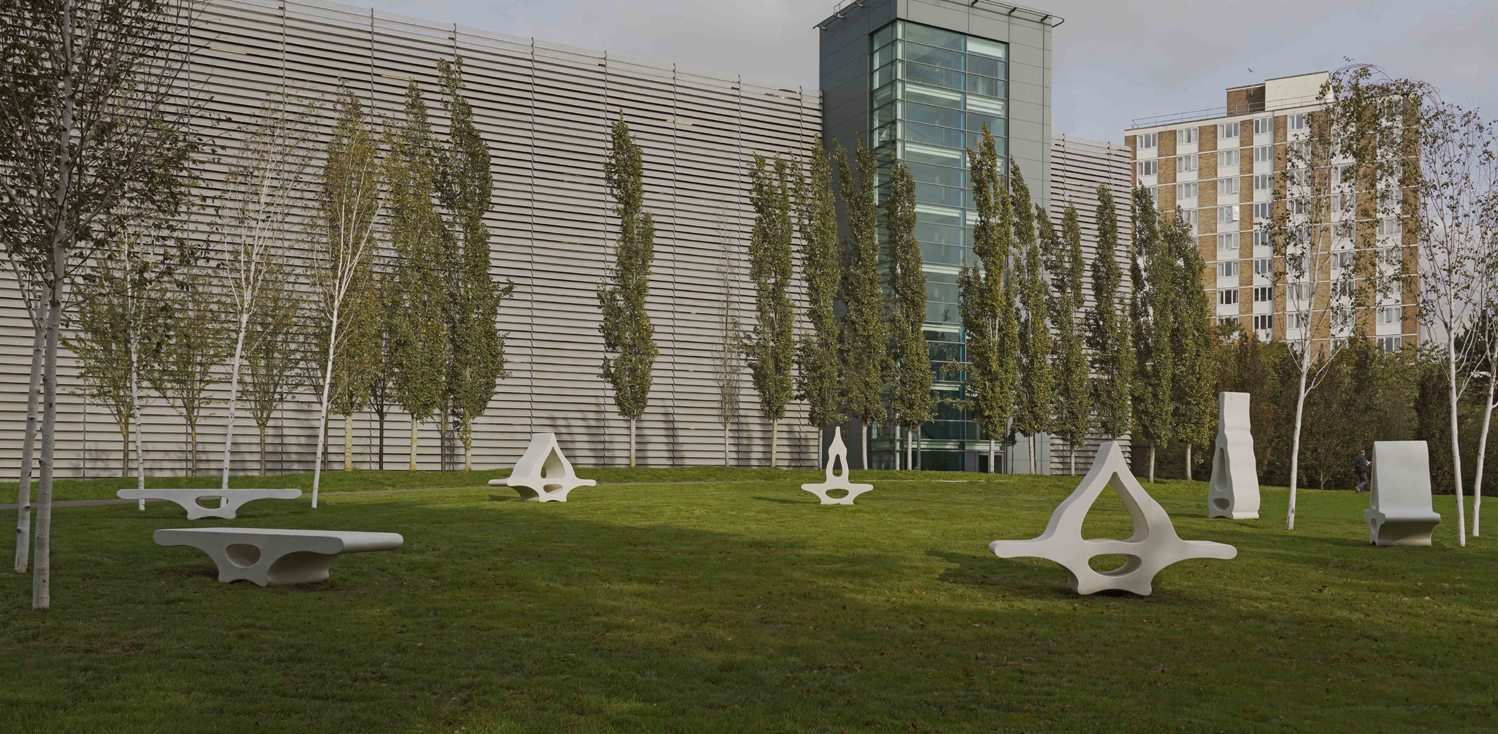
‘A Series of Standing Stones that engage and reflect on the anatomy and psyche of being human’
UKCSA Full Member Plean Precast were approached by one of the UK’s most prominent arts and design practices to create a permanent artwork at The Jeffrey Cheah Biomedical Centre located in the Cambridge University Biomedical Campus.
The artwork was designed around seven abstracted vertebrae shapes, encouraging the user to sit, recline, lie or lean on the cool stony surface. The concept was to show an evolving shape from recumbent through to standing, allowing the body to sense a range of physical and perceptual experiences and perhaps an opportunity to recalibrate.
The experienced Plean Precast team were involved early in the concept design of what could be achieved in terms of form and final finish. The actual manufacture required exceptional attention to detail in the design and manufacture of fibreglass faced moulds and the wet cast Skye Marble and Portland stone mix design, through to the final handling and installation on site in 2019.
“It is a rare occurrence to work with a company who are as pernickety about surface finishes as we are, but the level of skill and craft that Plean could bring to this project were exceptional, no doubt honed over a lifetime of casting and experimentation. We had a few challenges along the way but the team stayed with the project and were tenacious in overcoming difficulties that other companies might have bailed on. The results were fantastic and have been much enjoyed by the community who use this site throughout the year”
Matthew Dalziel and Louise Scullion, Artists
“I’m sitting in the building where the sculptures are located, but on my way over the path from the old hospital they looked magnificent again, solid and absolutely white in the fading light and thought, what my patients needed most was a ‘kyphosis chair’ to help them take the weight off their curved backs! Can I congratulate you on making the space very beautiful and thought provoking? The finish and quality are absolutely sensational, speaking as someone working on bones most of the time.”
Dr Ken Poole, Reader in Metabolic Bone Disease, Department of Medicine, University of Cambridge
